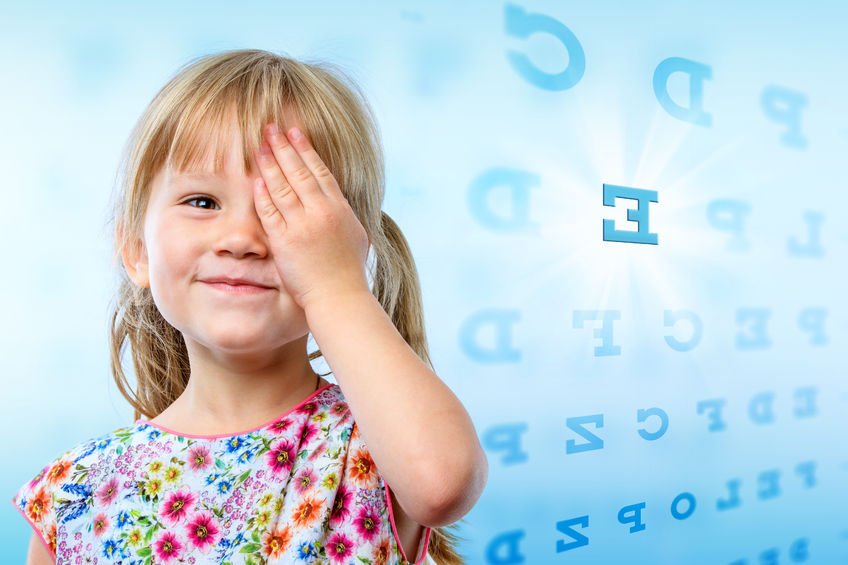Eye screening and tests

NHS eye screenings and tests for children
All babies will have eye screening at birth and again at about six weeks of age by a GP or health visitor.
Children usually have an eye test (vision screening) soon after they start school at 4 to 5 years old. This doesn't routinely happen in all areas. If your child's vision is not checked at school, speak to your school nurse or take them to your local opticians for an eye test.
Vision screening checks for reduced vision in one or both eyes and for a lazy eye. It is important as around 1 in 10 children fail this first eye test. The aim is to pick up any problems early so they can be treated and not interfere with your child's learning.
Besides the eye screenings, children should have an eye test every 2 years, as problems can occur at any age. Certain behaviours can be a sign that there is a problem such as:
- Sitting too close to the TV or insisting on watching TV in the dark
- Rubbing their eyes a lot
- Holding objects very close to their face
- Blinking a lot
- Showing signs of a squint: the eyes don’t look in the same direction. One eye may turn inwards, outwards, upwards or downwards, while the other eye looks forward
- Problems navigating in the dark, for example entering a tunnel or the cinema
Even if none of the symptoms above is displayed, there could still be an underlying eye condition. If you are worried about your child's sight or there is a history of squint or lazy eye in the family, do not wait for the vision screening at school. Take your child to an ophthalmic practitioner or optometrist, who will see children of any age.
![]() Don't worry about the costs, as all NHS sight tests are free for children under the age of 16.
Don't worry about the costs, as all NHS sight tests are free for children under the age of 16.
For more information, read: entitlement and costs.
![]() Children do not have to be able to read to have their eyes examined. It's possible to see whether the child has a squint or needs glasses without asking them any questions, using age appropriate tests and equipment.
Children do not have to be able to read to have their eyes examined. It's possible to see whether the child has a squint or needs glasses without asking them any questions, using age appropriate tests and equipment.
If the eye test detects any problems, your child will be referred to an orthoptist. An orthoptist is part of the eyecare team and generally works alongside ophthalmologists and optometrists. Orthoptists work in local health clinics or hospital eye clinics. For more information, read: What eye tests may be carried out.
What are eye drops used for during an eye test?
Some children, especially younger ones, might need eye drops for their eye test. This is important to make sure the correct glasses are given by allowing the optometrist or ophthalmologist to have a better look at the back of the eye.
If eye drops are needed you will be given more information at the time.
Further information:
Find an NHS optician
Why eye tests are important for children
Visual impairment support services
Eye health is so important that in Bradford, a new study has been carried out in schools called Glasses for Classes.
This guidance has been reviewed and adapted by healthcare professionals across West Yorkshire with consent from the Hampshire development groups.



